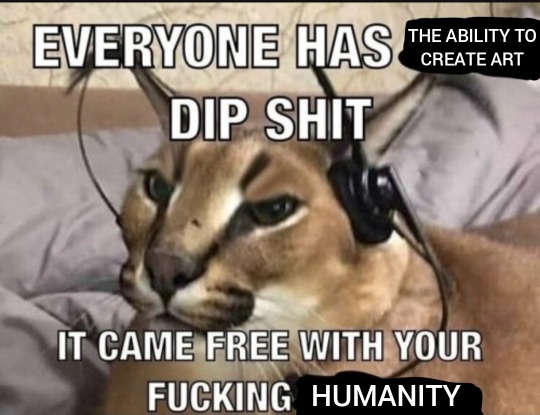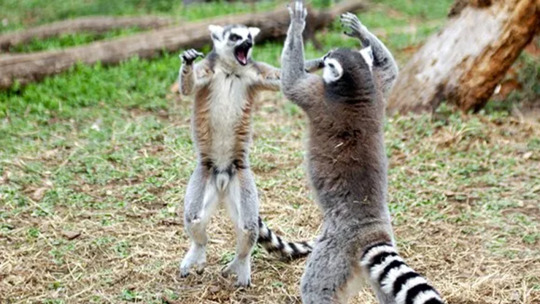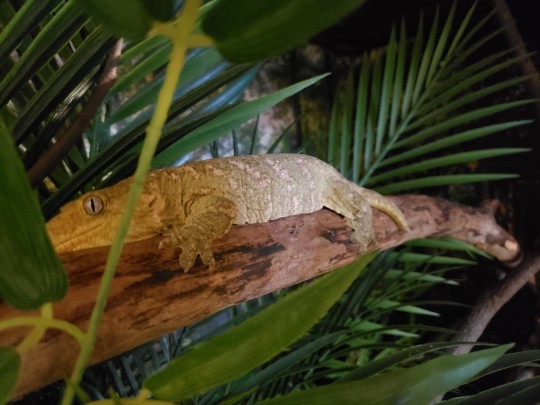#zoo information
Note
hi there! love your work! i recently had a prof say that all zoos (USA) are bad (so we shouldn't support them) and sanctuaries are better because using animals for entertainment is morally wrong, most zoo profits dont go to conservation, and conservation efforts are bandaid solutions to capitalism destroying animal habitats, so the real solution is to return the land to indigenous stewards to manage/rewild. i didn't disagree with the last bit, but the argument as a whole felt a little off to me for a reason i couldnt put my finger on. am i off base here? just feeling really unsure about the whole thing.
You're not wrong! There's a mix of reality and personal opinions in those statements, and it's definitely something worth critically examining. A quick fact-check of what they said for you:
All US zoos are bad
There's a massive range of quality of zoological facilities within the US (and around the world). Some are stellar and some are not, and it's really just not accurate to lump them all under the same umbrella for almost any purpose. Unless, of course, your issue isn't with animal welfare, and it's philosophical, which is what it sound like in #2...
2. Using animals for entertainment is morally wrong.
This is one of my favorite things to talk about w/r/t how we exhibit animals. Entertainment has become equated with exploitation and implicit low welfare in the last couple decades, and so you get a lot of people saying using animals for entertainment is wrong. But those same folk will say that they enjoy seeing animals in other contexts, and they think that's okay. Where's the line between enjoying something and being entertained by it? What makes something one and not the other? Also, we know that people learn better from from situations which are enjoyable/entertaining - even just a fun teacher who jokes around vs a dry lecture - so how can that only be a problem when it's used to make viewing animals more impactful? I wrote a whole piece on this a while back (linked here) if you want to dig into this more. Some zoos (and accrediting groups) are shying away from "entertainment" type branding - shows are demos now, for instance - and others are leaning into "edutainment" that's done with good welfare and communicates actual education messaging. In short, this is a personal philosophical belief, and you're right to question if you agree. (Even if you decide you do think that too! It's always good to question why someone is arguing what they believe about animal use, and how they came to believe it).
3. Sanctuaries are better than zoos.
There's two reasons I think he's misinformed here. First, almost all exotic animal sanctuaries in the US are licensed exhibitors - just like zoos! I only know of a couple that don't exhibit to the public at all. It's an important part of their revenue stream, because gate take helps support paying for animal care. Also anything you see from a sanctuary on Youtube, Facebook, or TikTok? Also exhibition! They just message about it differently, and often have a different ethos about how they exhibit (e.g. tours to reduce stress instead of letting people wander, doing conservation or rescue messaging instead of just display). Second... look, most people assume that the word "sanctuary" means a facility is intrinsically more ethical than a zoo, and therefore they must be a good place. In reality, many sanctuaries get much less public and regulatory scrutiny (at the state level) than most zoos. There are good sanctuaries out there, but there are also sanctuaries where stuff goes on that would absolutely be unacceptable at zoos, and it slides because of the assumption that sanctuaries are inherently more moral and ethical and care for their animals better.
4. Most zoo profits don't go to conservation
This is correct! Direct conservation funding is often a small part of the money a zoo makes. However, that's because money goes to things like facility maintenance, new construction, paying salaries, etc. If zoos put all the money they made back into conservation programs, practically, they wouldn't have the funding to continue to operate. The question that I'd suggest asking instead is "where are they putting money into conservation" and "are they doing conservation work or just throwing money at something to display the logo of the program." Also, it's worth keeping in mind that a lot of what zoos do to support conservation isn't necessarily financial. Many facilities contribute "in-kind", by doing things like sending staff to assist with programs or teach specific skills, or by donating things like vehicles and equipment. Research zoos do also seriously contributes to in-situ programs, and breeding programs for re-introduction like the scimitar-horned oryx and the black-footed ferret are also conservation. Could many of the big urban facilities with huge budgets do more? Yes. But looking just at dollars spent on conservation programs is disingenuous and inaccurate.
5. Conservation efforts are band-aid solutions to capitalism destroying habitats / Returning the land to indigenous peoples to manage/rewild is the real solution to conservation issues
This is a little outside my scope so I'm going to only address the part that I know. First off, like, there's no One True Answer to conservation issues. That's reductionist and inaccurate. Conservation really is a human issue, though, and it often has to involve solving human problems that lead to negative results for animals. There's definitely an issue with what some people call "parachute conservation" where Westerners swoop in and try to tell people living in range countries how to best manage their animals and natural resources without recognizing their perspectives, needs, or what drives their behavior towards those animals. That's not just a zoo issue - that's an issue with a ton of traditional Western conservation work. And there is progress towards fixing it! In the zoo world, I've been very impressed with the work out of The Living Desert, where their conservation people spend a lot of time overseas teaching people in range countries to evaluate and improve their own conservation programs, so they can assess efficacy and also have data to apply for grants, etc. They provide support when asked, rather than trying to tell people who live with these animals regularly what to do. One of my favorite programs that TLD collaborates with (they don't try to run it!) is a group called the Black Mambas that reduces poaching by supporting entire communities to reduce the desperation for food/income, educating kids about animals, and running all-female patrols staffed by community members.
Overall, it sounds like your professor's view of zoos is really informed by their personal moral perspective, and possibly reinforced by a lot of the misinformation / misleading messaging that exists about the industry and about conservation work. They do have some specifics right, but not necessarily the context to inform why things are like that. It was a good catch to question the mix of information and approach it critically.
1K notes
·
View notes
Text

Learning to internalize the message above, but art is in all of our bones. If you feel afraid to create art because it won't be "good enough," it's worth it to explore why you feel that fear. Creating art is one of the basic impulses of people, and if you want to create art, then you absolutely must.
#art#positivity#described images#image description in alt#i'm like 80% sure that's a lynx but i've never seen one irl#i'm going to weld this meme into my brain as i start crochet#maybe i have seen a lynx at the zoo actually. but that's beside the point and i haven't been to a zoo in years (sad!)#the zoos in my state are actually from what i understand VERY high-end and VERY good with their animals#which definitely makes me more willing to support them <3#i have been informed this is not a lynx btw#IN MY DEFENSE they look similar#thank GD tumblr unlike twitter lets you edit alt text. staff was real af for that (rare compliment i have for staff)
10K notes
·
View notes
Text
liam being the only person theo even vaguely talks about what being trapped underground was like with— there’s nothing worse than what i’ve been through; i’m fine, just thought i was somewhere else for a second; [where?] in a bad dream; what do you think i was doing down there?— when we all know he’s usually mr. talk-about-everyone-else’s-emotions-but-my-own… him calling liam out for wanting him to stay by his side because the anukite was making him afraid and pointing out the deeply personal pattern of how liam processes his feelings and usually settles on anger… liam not even being able to get mad at that because he seems almost resigned to accepting what theo is telling him despite previously getting upset when theo asked him what was wrong… and mind you these two aren’t even supposed to be able to tolerate each other. oh okay. i see.
#blah blah blah something about his ‘emotional pain is the type of pain that lasts’ speech#liam definitely did not know what to do w that information like i cant blame him for throwing it back at theo when he got angry cuz like.#i think it was the only way liam could think to hurt theo as much as theo tends to hurt him#and he didn’t have all the context as to what he was saying. so anyways.#liam being able to hold it together while brett beat the shit out of him but still wanting theo with him at the zoo just in case#hes so . :(#thiam#theo raeken x liam dunbar#theo/liam#theo x liam#theo raeken/liam dunbar#teen wolf
88 notes
·
View notes
Note
do you know if all non-human primates are (typically) adverse to (most) eye contact? :) (i think that there are some situations with certain species where eye contact is more common and nuanced, but i might be wrong) i was at the zoo and i wasn't sure whether to look the lemurs in the eyes or not! (i played it safe and avoided eye contact :) thanks for answering all these questions!! i love your blog!
Awesome question, this is one I took straight to lemur keeper Liam of the Calgary Zoo, where they have a lemur enclosure guests can walk through, barrier-free.
Lemurs are not averse to eye contact, and in general respond a lot more to body language. This is why guests in the lemur enclosure are instructed to not bend down, as keepers assume the same position to feed the lemurs.
Eye contact is typically only a threat in species that have hierarchies where an outsider may threaten the group, and while lemurs can have hierarchies they are not as strict as macaques or chimpanzees. Lemurs threaten each other with stances and smells, in a technique known as 'stink fighting'

These ring tails are challenging each other by showing their scent glands off and preparing to pounce. Their threat language is totally different, and as humans don't have scent marking glands we don't run the risk of accidentally stink-threatening them.
Many species of monkeys are also not very reactive to eye contact, but lemurs are the least reactive of the primates. Besides their different social language, lemurs also don't see humans the same way monkeys and apes do. It is hard to quantify exactly, but apes and monkeys appear to understand humans as being similar to them in a way that lemurs do not.
Avoiding eye contact is a good behaviour to practice, but the most important species to avoid eye contact with are macaques, chimpanzees, gorillas, and capuchins. To my knowledge, they are the most likely to be upset.
46 notes
·
View notes
Text


This is a New Caledonian Giant Gecko (Rhacodactylus leachianus). They're also called Leachie Geckos!
As an arboreal species, they're typically found in the forests of New Caledonia. They're omnivores, meaning they eat both meat (Insects) and plants. In the wild, they'd typically eat things like insects, spiders, small invertebrates, fruits, and nectar.
At our facility, we feed them live insects (Crickets, roaches, etc.), fresh fruits and vegetables, and Repashy. They also get their various supplements such as calcium powder and vitamin D3.
They're the largest gecko species and have been known to grow over a foot long in length!
#animals#leachies#new caledonian giant geckos#new caledonian gecko#zookeeper#zoo#reptiles#leachie geckos#reptile#reptiblr#lizards#geckos#leachianus gecko#geckblr#information#education#original post#q
41 notes
·
View notes
Note
Hehe now that you're busy I can sneakily drop this here for you to come back to🤭 I just wanted to say how much I love talking to you or sharing our many thoughts about the boys. Our chats got so chaotic lately😂 I hope you're having fun rn, stay safe🖤 love you, my Minnie🖤

also you're the cutest tiny baby🥺

Ohh you sneaky little-
I see how it is! I go have fun and you just go and betray my trust like this! I trusted to tell you I would be busy and you just go and drop one of these! I am side-eyeing you so hard rn.. Ohhh you just wait, ill get you back for this.. 😤
#and I am NOT a cute little baby!#Stop that.. ☹️🥺#nutjob <3#my little walnut ❣️#mooties 🤍#also they gave me a bunch of skz reactions and this isnt even one of them lol#im collecting so many rn and it is glorious#might have to start deleting othwr stuff like a zoo trip and card information soon.. 😞🤭
5 notes
·
View notes
Text
I'm so fucking excited to go to the osaka aquarium.
Like the childlike wonder and joy I have for an aquarium.
They have fucking mola mola and a whale shark.
And a special night time event....
#fyi if anyone comes into my inbox complaining about aquariums you can go get a job and leave me alone#are there problems? yeah ofc#but even if you find it frustrating people-humans-NEED to see the things were telling them to care about sometimes to care#that doesnt make anyone lesser by the way so take weird self righteous bs somewhere else#also insane to think out of the sheer amount of people working at aquariums worldwide that every one of them is cruel to every fish#most reputable aquariums and zoos do more for conservation and informing the public than the people complaining#we are not a perfect world and to demand so is not humanly possible#i h8 that i feel i need to back up myself for just being excited for something but ive lost trust in a lot of tumblr...
8 notes
·
View notes
Text
POV, you are a bee working diligently in the hive when a Sun Bear arrives for a snack
chesterzoo
#bears#sun bears#chester zoo#i really like their social media#informative and fun all at the same time
66 notes
·
View notes
Text
tighnari fans stop posting pictures of neglected/irresponsibly kept exotic pets because they remind you of your blorbo challenge
#fennec foxes are cute yes but they are also terrible pets#its bad for you and for the fox#ultimately theyre wild animals and there are things you just cant train into or out of them#and they have a very specific set of care needs including their diet and vet care that are pretty much impossible to meet#unless you can literally run a private zoo i guess#not to mention the whole having to be taken away from their parents way too early to be hand raised by humans thing#please be more skeptical about the welfare and safety of a completely undomesticated wild canine kept in someone's living room#like im no expert on this shit but its very clearly heavily questionable at least#just because you can find websites saying that fennec foxes 'aren't for everyone' doesn't mean people are informed enough about the needs o#this animal and responsible about keeping them. it is far more likely that any pet fox you see on social media is not in fact#being kept in adequate conditions#if people want the animal they will convince themselves that 'not for everyone' doesn't apply to them and overestimate themselves#you should always be skeptical about wild animals in captivity. even those kept by people who claim they've done their research#obviously don't fall for the idea that animals have to be broken out of zoos for their 'freedom' or whatever#just yknow. consider the animal beyond how cute it is. they are living creatures. not just fun internet images#also tighnari would fucking tear you a new one for this his whole job revolves around protecting wildlife from ignorant ppl and vice versa
3 notes
·
View notes
Text
I wonder what size the window of time was between Disney loosening up on acknowledging that the animal residents of Animal Kingdom have names and my first trip to WDW. How close was I to getting confronted by security because I greeted one of the gorillas by name? Because that's a thing that happened to someone else before the loosening up ferfreyguhid
#same gorilla even#i know disney can be weird but finding that out was SUPER weird#''how do you know his name??????''#idk how to explain to you that this gorilla existed before he moved into your zoo#so like even if you actively kept ANY information about your gorillas off of publicly accessible sources#you'd only be able to possibly do that with gorillas born at your zoo#you might become a black hole for gorillas but there will be evidence of their existence from before they lived with you gferiuhwdij#(i knew this gorilla despite not having met him before because he used to live at my zoo#and some of his children and grandchildren are residents here)#disclaimer that this weird strict control of information is no longer the case#and the ak gorillas are very well cared for and have wonderful homes
5 notes
·
View notes
Note
If you don’t mind sharing, since you don’t work for a zoo what is your job situation like? Making a living while working at a definitely zoo seems tricky. Is your main income zoology/animal related or is that more of a side thing?
Sincerely,
- a curious zoology student
I have a (mostly) unrelated jobjob - I’ve never actually been affiliated with a single facility, unless you count college internships before I started this blog. I freelance, working as a science media fact-checker and taking paid research contracts occasionally. I do work on a lot of animal / biology related fact-check content, but it’s not my entire scope of work. I also have the privilege of having family assistance, as I have chronic health issues that interfere with the normative 9-5 grind.
Everything I do in terms of blog writing/research, zoo industry research and publication, and photography is unpaid and pretty much a hobby at this point.
Prior to the pandemic I was trying to find funding for the intra-industry research and public-facing outreach I was doing, but there was never any money for it. (The industry is very used to expecting labor from young women for free. There was and is a lot of interest in the work I do, but the number of people/orgs that have ever provided compensation or financial support is in the single digits). The pandemic actually gave me the chance to pivot to focusing on professional fact-checking.
The only funding I get for any of this work is through a somewhat defunct Patreon I set up years ago when I was trying to make this blog / scicomm a full time gig. I’m terrible at updating it, and I’m conflicted enough about that to have been considering deleting it entirely. (For those of you who have stuck it out despite the radio silence, you’re incredible. You’ve facilitated the donation of my time to write a really cool paper with a zoo disaster response org, which will hopefully get through peer review soon).
To make something like this blog and everything else I do in the field actually financially sustainable, I’d need to fundraise and market more. The thing about a fact-checking career, though, is that it’s reinforced the need to make sure everything I write/say publicly is completely and 100% correct - because that level of rigor is what supports my professional reputation! Which means I’m slow to produce research and reticent to talk about it before it’s finished. My work comes out all the better for it, but it doesn’t fit into a content model that produces revenue.
So yeah, all of this is a side thing that I fit in around my paid work and my health. Because sometimes I just need to go see a tiger and smell an elephant, y’know?
#personal information#zoo job almost always require multiple incomes or family support#or generational wealth#otherwise you live in poverty#I am on a very non traditional industry path and it definitely does not pay either#but it’s a passion project
143 notes
·
View notes
Text
lord give me strength not to punch my relatives, kick my relatives, throw my relatives into the sun,
#'went to the zoo with basil - back then *deadname* - in 2004'#thats a whole sentence of redundant information you shoved in just to be an ass#we all know who you're talking about. you dont need to emphasize what a transphobe you are. your past actions have shown that already#but if i say something i'm the problem. rage. wrath even#gonna eat the whole fridge just to get away. also because im so fucking hungry#basil yells at cloud
8 notes
·
View notes
Text
sometimes i forget that the bat is a minor NPC who only shows up in 2 stories (CR and ao's MSS), and that my entire characterization of her is built on overanalyzing the handful of scenes she appears in + the implications carried by ao's own character arc. then someone goes "who tf is the bat" and i'm like. oh right. of course most people don't think about her nearly as much as i do
#i love random nobodies who get like 5 lines in the whole game#it's my thing!!#love love love pulling apart scraps of canon information and constructing ideas#it's like analyzing a faraway star or deciphering an old script#enrichment!#i am a zoo animal and the bat is the pumpkin i am rolling around in my enclosure#that said i did not foresee this turn of events at all when i first read CR 2 years ago#i love u miss monzenbashi#(and u too ranka)#magia record#bat of monzenbashi#i need a new personal tag
9 notes
·
View notes
Text
i have to quit the pet store i can’t stand how little most adults know about animals. every single day parents point out the hamsters to their children and say look at the mice
#or they exclaim What IS That Thing about any given creature#when every single animal has a picture tag card thing just like the zoo! with information with bold font about the animal!#brother have you learned to use your eyes!#i’m too autistic for this i get so snappy when someone is refusing to even try to learn. even in a professional environment
13 notes
·
View notes
Text
so I was vegan for around a decade and in that time I was anti-zoo. my thinking around my relationship to other animals has shifted a lot in the past year or so and I'm now thinking I'd like to maybe give visiting a zoo a go!
I'm still feeling unsure/apprehensive but I'm trying to find reliable resources on which places have the highest welfare standards. I love looking at creatures but I know if I see them in less than optimum conditions it will be so upsetting. but I'm also aware that zoos are very important to conservation these days so it would be nice to support that!
#I'm finding it surprising how little information there is on welfare standards on the websites of some of the zoos I've been checking out#like surely that should be the most important thing?#idk i'm finding it all a bit confusing/overwhelming but I'm not in a rush#this just feels like an important thing for me to do for some reason#so I want to do it right!
2 notes
·
View notes
Text
.
#the dallas zoo stuff has me seriously stressed out#not only is it awful for them of course#but anytime something happens at another zoo I’m always worried that people are gonna do something here too#we used to have protestors more often but not since the pandemic thankfully#but every time a zoo makes the news it worries me#and trying to stay informed while avoiding peoples rancid opinions is so difficult
6 notes
·
View notes